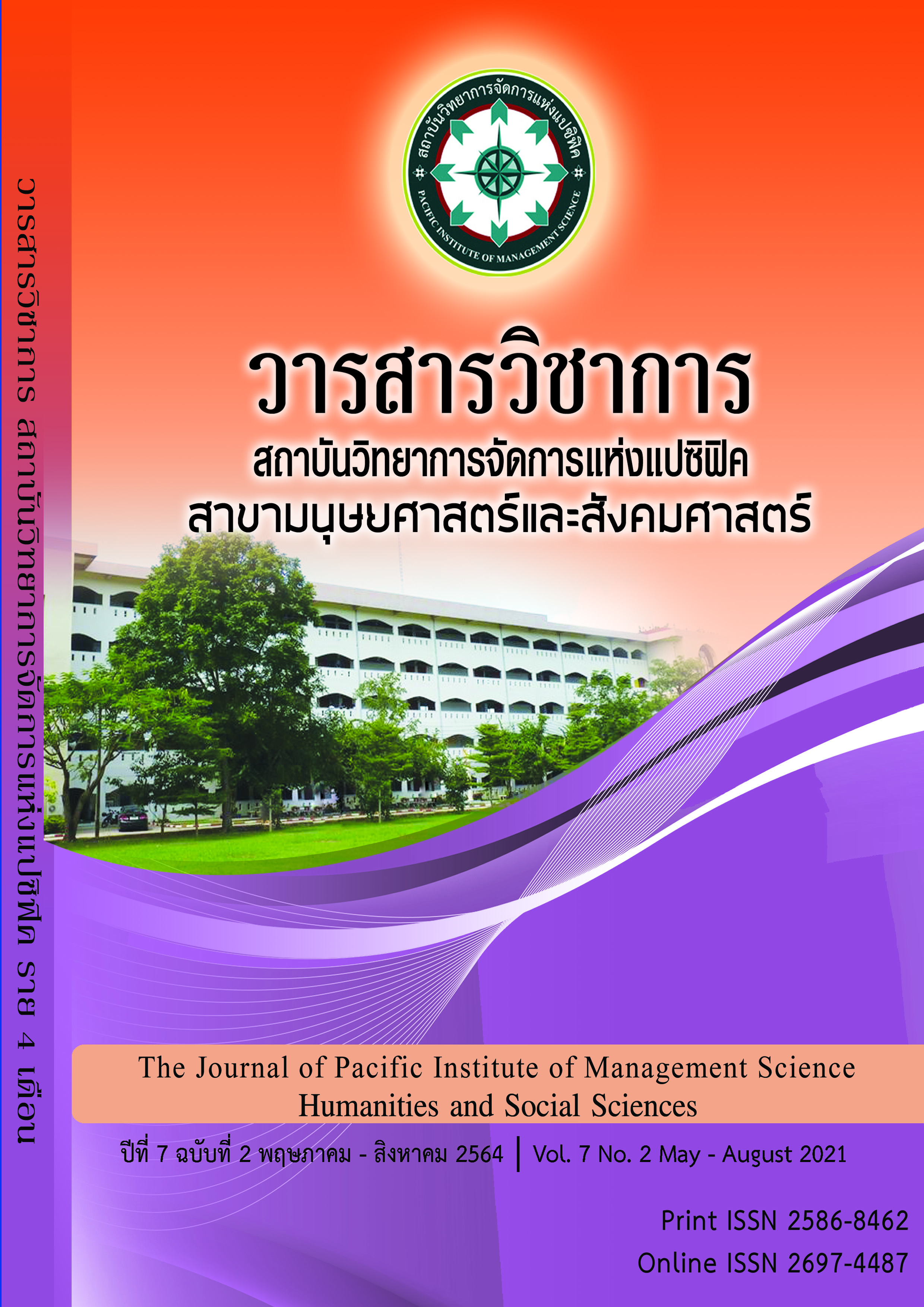Foreign teacher preparation context: The lesson is capable to apply to Thai education system
Keywords:
Foreign teacher preparation, Lesson, Thai education system.Abstract
When looking at the principles of education reform in Thailand, one of the most highlighted issues that people have raised for criticizing is the difference between the Thai and Foreign education systems, which has been compared many times. Countries that have successfully reformed education were able to do so because there is an effective system for the reform of education, allowing their citizens the opportunity to build knowledge, abilities, and experience in various fields for the development of the country. It can be noted that in developed countries, the general population is highly educated; all countries of the world share the same view that countries cannot develop at all without quality education. Therefore, there is both need and desire to set up policies for educational development, often with a focus on teacher development as the first priority. It can be argued that one of the more important variables affecting student achievement is the quality of the teachers; teachers are the human resources for educational development, which leads to national development. Learning from successful people through the "copy and develop" method allows one to learn, adapt, and apply the best parts of such success. Therefore, enhancing and developing teachers abroad is one lesson that can be applied and integrated to enhance the quality of education and to develop management skills that suit the further development of learners.
References
สำนักงานเลขาธิการสภาการศึกษา. (2560). แผนพัฒนาการศึกษาแห่งชาติ พ.ศ. 2560-2579.กรุงเทพฯ: พริกหวานกราฟฟิค.
สำนักงานเลขาธิการสภาการศึกษา. (2561). การพัฒนากลไกการขับเคลื่อนระบบการผลิตและพัฒนาครูสมรรถนะสูง สำหรับประเทศไทย 4.0. กรุงเทพฯ: พริกหวานกราฟฟิค.
อภิภา ปรัชพฤทธิ์. (2561). การพัฒนารูปแบบการผลิตครูเพื่อรองรับการศึกษายุค 4.0. กรุงเทพฯ: คณะครุศาสตร์ จุฬาลงกรณ์มหาวิทยาลัย.
Barber, M., & Mourshed, M. (2007). How The World’s Best-performing School Systems Come Out on Top. London: McKinsey & Company, Social Sector.
CRI Marks China's First English Radio Show. (Archive) CRI English. (2018)
Elise Hu. (2015). The All-Work, No-Play Culture Of South Korean Education. Retrieved from http://www.npr.org/sections/parallels/2015/04/15/393939759/ the-all-work-no-play-culture-of-south-Korean-education
Lim, K. M. (2013). Teacher education in Singapore. Paper presented at the SEAMEO RIHED Regional Seminar on Teacher Education, National Institute of Education, Singapore.
Ministry of Education and Culture. (2016). Teacher education in Finland. Retrieved from http://minedu.fi/documents/1410845/4150027/ Teacher+education+in+Finland/ 57c88304-216b-41a7-ab36-7ddd4597b-25
Downloads
Published
Issue
Section
License
บทความที่ได้รับการตีพิมพ์เป็นลิขสิทธิ์ของ สถาบันวิทยาการจัดการแห่งแปซิฟิค
ข้อความที่ปรากฏในบทความแต่ละเรื่องในวารสารวิชาการเล่มนี้เป็นความคิดเห็นส่วนตัวของผู้เขียนแต่ละท่านไม่เกี่ยวข้องกับสถาบันวิทยาการจัดการแห่งแปซิฟิค และคณาจารย์ท่านอื่นๆในสถาบันฯ แต่อย่างใด ความรับผิดชอบองค์ประกอบทั้งหมดของบทความแต่ละเรื่องเป็นของผู้เขียนแต่ละท่าน หากมีความผิดพลาดใดๆ ผู้เขียนแต่ละท่านจะรับผิดชอบบทความของตนเองแต่ผู้เดียว







